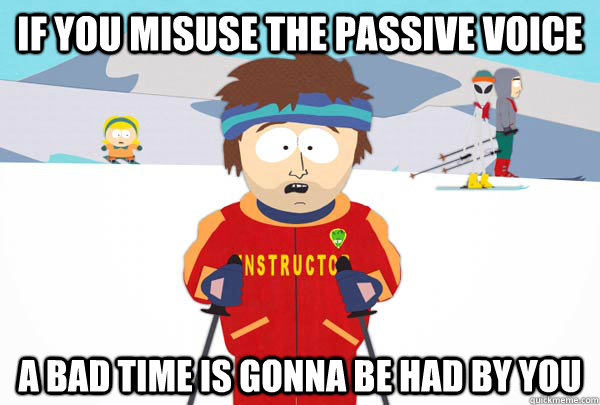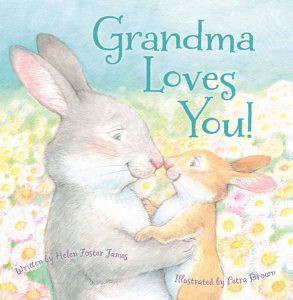by Naomi L. | June 30, 2017 | J.C. Wolfe's Writing, Poetry |
For over two hundred years,
Our country has been free, the
United States of America,
Representing a beacon of light
To all those seeking a brighter future and
Hope for a brand new start.
Opportunities abound in this land of
Freedom for all who come with a dream.
Join the celebrations tonight
Under the Star-Spangled Banner!
Land of the free, home of the brave,
You will always be my home!
Yes, no matter how crazy the world gets, a part of me will always believe in this idealized image of my beloved America. Happy Independence Day to all my American family, friends, and readers! May you all have a blessed Fourth of July weekend!
by Naomi L. | June 28, 2017 | Blog, Creative Writing, Featured |
Anyone who either is or has worked with an editor has had to deal with the common writing issue of active voice vs. passive voice. Any and every editor worth their salt will tell you to favor active voice, while writing in passive voice is just another bad habit you’ll have to learn to break. But why? What is active voice and what makes it so much better than its passive counterpart?

Finally, a fun way to check for passive voice!
(Image source: Grammarly Blog)
In a nutshell, an active voice sentence is when the subject does an action to the object, while passive voice is when the subject has an action done to it by the object. Both voices can be used to convey the same message, yet writing tips often advise favoring the former over the latter. This is especially true for fiction, which relies heavily on not only keeping readers engaged for an entire story, but evoking their emotions as you guide them through the world of your narrative.
So to help you create stronger and more appealing fiction, here are three reasons you should favor active over passive voice. Good luck!
1) Active voice is clearer, stronger, and more concise.

The longer you’ve been writing, the more you appreciate concise and direct language. In this modern-day barrage of knowledge, information that’s delivered and processed quickly tends to have a greater impact, so the fewer words you can use to convey a message, the better. One way to achieve this is by replacing passive voice statements with their active counterparts. Observe the difference:
Active: She loved him, but he rejected her.
Passive: He was loved by her, but she was rejected by him.
Notice how the active voice sentence is simpler yet much more powerful. Written concisely, the feelings of love and rejection between these characters become prominent and impactful, whereas the longer sentence appears convoluted and awkward, despite having the same meaning. By using fewer words, you can keep your writing direct and make your narrative stronger, which will result in more effective prose. Why let it be done by you when you can just do it?
2) Active voice sounds more natural.
Think about your favorite story, that book you enjoy so much you could read it over and over. Now think about why you love it. If “it speaks to me” is one of the first reasons to come to mind, then you’ve just made an excellent point to support active voice.

The types of writing that most resonate with us are the ones that sound familiar, that is, that mimic the way we speak. Active voice achieves this far more easily than passive voice because most of our speech is active. For example, when bragging to someone about an achievement, you wouldn’t tell them, “That was done by me”; you would say, “I did that!” Similarly, narrative should be as direct and “active” as spoken words. You want to draw your readers in and keep them hooked to the last word, and what better way to achieve that than by speaking directly to them?
3) Active voice keeps the momentum going.
One of the keys to good storytelling is to always keep the action moving forward. Even slower descriptive scenes should read smoothly, with new and relevant information in every line. Passive voice makes this difficult, as it has a way of dragging the pace of a story with unnecessary words and phrases. Don’t give your readers a motive to put your book down!

You don’t want your readers to have a bad time, do you?
Keep your prose clean by limiting passive voice to the few instances in which it works best:
- when you can’t say who performed the action;
- when you want to emphasize the action itself; and
- when you’re highlighting a general truth.
In all other cases, active voice will better maintain the momentum in your narrative, keeping your readers engaged through each new action until the end of the story. A good example of why this works is the Hero’s Journey: the hero answers the call to adventure, faces trials, confronts a great ordeal, collects the reward, and returns from his or her quest a new person. At every stage, the hero does something that leads to something else, standard cause and effect that propels the action forward. Apply this technique to your prose and the active voice will accomplish its most important goal: to make your writing active and interesting!
Perhaps you tend to overuse the passive voice without realizing (I know I’m still guilty of this), but luckily it’s an easy problem to fix. So the next time you edit one of your stories, keep an eye out for unnecessary passive sentences and replace them with their active parallels. Your readers will appreciate the effort!
What are your thoughts on active and passive voice? Are you guilty of not using active voice as frequently as you should?
by Naomi L. | June 26, 2017 | Blog, Word of the Week |
Word: despot
Pronunciation: DES-pət
Part of Speech: noun
Definition: a ruler or other person who holds absolute power, typically one who exercises it in a cruel or oppressive way
Source: Oxford Dictionaries
There are despots and dictators,
Political manipulators.
There are blue bloods with the intellects of fleas.
There are kings and petty tyrants
Who are so lacking in refinements,
They’d be better suited swinging from the trees!
– “Perfect World“, The Emperor’s New Groove (2000)
Remember The Emperor’s New Groove, that wacky Disney movie about a cool Mesoamerican emperor who gets turned into a llama? If you saw even the trailers for this film back in the year 2000, you may recall that Emperor Kuzco is so vain, he even has a servant whose only job is to sing him his own theme song (voiced by Tom Jones, no less)! To emphasize the emperor’s greatness, the opening lines of the song mention other types of not-so-great rulers who could never measure up to him. The irony? Given his extreme selfishness, Kuzco may very well be a “despot” himself!
A “despot” is a ruler with absolute power, which is typically exercised in an oppressive or cruel way. The word arose in the mid 16th century and traces back through the French noun despote and the Latin noun despota to the Greek noun despótēs, meaning “master”. This word was first used as a court title in the Byzantine empire, while the current sense dates back to the late 18th century.
According to Oxford Dictionaries, the word “despot” originally referred to petty Christian rulers under the Turkish empire after the conquest of Constantinople. While not originally pejorative, the word gradually took on a negative connotation throughout history, eventually becoming synonymous with such terms as “tyrant” and “dictator”. Notably, however, despotism is a distinct form of government with its own history, so take care when using these terms interchangeably in a historical context. If you write characters who are oppressive rulers with absolute power, “despot” may be an excellent word to include in your stories!
What are your thoughts on this word? Any suggestions for future “Word of the Week” featured words?
by Naomi L. | June 23, 2017 | J.C. Wolfe's Writing, Poetry |
Only the middle sister truly knows
The challenges of being two in one:
A mentor to the youngest as she grows,
And scapegoat for the eldest to have fun.
You always know the perfect thing to say
To make us laugh until the point of tears.
You’ve cared for us in each and every way
And brought us so much joy throughout the years.
And neither of us know where we would be
Without you there to make life such a game.
No matter where you stand among us three
We both adore and love you just the same.
So Happy Birthday, Sister Number Two!
Love always, the big sister who loves you!
Happy Birthday to my awesome little sister! Keep on being the amazing person you are! I love you!
by Naomi L. | June 21, 2017 | Blog, Creative Writing |
Creative inspiration can come from anywhere, and some of the best comes from the people you love most: your family. Every family member has their own unique qualities and abilities to contribute to your stories, but one in particular stands out for how much unconditional love and care she showers on you: your grandmother! Grandmas have plenty of love to give their grandchildren, so they can serve as great inspiration for grandparent characters in your stories!
So to honor someone special in my life, today’s post features three lessons you can only learn from your grandmother. Enjoy!
1) Grandchildren are meant to be spoiled.
 If there’s one thing grandparents are experts at, it’s spoiling their grandkids. Every family visit to my grandmother’s house includes platefuls of delicious homemade food and lots of fussing over us, mostly about how we’re “not eating enough”. She also makes a point of complimenting her granddaughters and telling us how much she adores us, and we can’t help but smile and tell her how much we love her too!
If there’s one thing grandparents are experts at, it’s spoiling their grandkids. Every family visit to my grandmother’s house includes platefuls of delicious homemade food and lots of fussing over us, mostly about how we’re “not eating enough”. She also makes a point of complimenting her granddaughters and telling us how much she adores us, and we can’t help but smile and tell her how much we love her too!
So if you’re writing a grandmother character, be sure to make her as doting as possible of her grandchildren. Have her share her best cooking with them, fuss over them without end, and constantly let them know how much she loves them and that they’re the greatest joys in her life. Grandmothers love spoiling their grandchildren, but that’s fine because we love being spoiled!
2) Nobody cooks like Grandma!
Going back to those “platefuls of food”, one thing I love about visiting my grandma is getting to enjoy the delicious snacks she makes! They’re something we always look forward to when we visit, since we get to enjoy them almost exclusively at family gatherings for special occasions. Her cooking is always a treat, so I’m glad her gift has passed on to my mother (and hopefully someday to me)!

When writing fictional characters who are grandmothers, it’s common to give them the skills to cook and bake delicious treats, especially for their grandchildren! Remember, nobody cooks quite like Grandma does, so for Heaven’s sake, learn those family recipes! You’ll definitely miss them otherwise.
3) No matter how old you get, your grandmother will always see a child in you.
Every time my family and I see my grandma, some story from when I was little inevitably comes up. My grandmother loves reminiscing about when her grandchildren were small enough to be picked up and were doing something adorable every minute, and I can’t really blame her. I too love to remember the good old days of childhood; in fact, my inner child is one of the main reasons I’m a writer today!
If one of the important characters in your story is a grandmother, a good touch is to give her excellent storytelling abilities, as much of her youth as of more recent times when her grandchildren were little. Grandmothers enjoy telling stories of the people they love most, so grandchildren will naturally be a favorite subject for them! And if nothing else, telling your own story inspired by your grandmother may be the best way to show her how much you love her too!
What lessons have you learned from your grandmother? What other lessons would you add to this list?
Dedicated to my grandmother, whose love has always been a wonderful inspiration. Happy Birthday, Grandma! I love you!





 If there’s one thing grandparents are experts at, it’s spoiling their grandkids. Every family visit to my grandmother’s house includes platefuls of delicious homemade food and lots of fussing over us, mostly about how we’re “not eating enough”. She also makes a point of complimenting her granddaughters and telling us how much she adores us, and we can’t help but smile and tell her how much we love her too!
If there’s one thing grandparents are experts at, it’s spoiling their grandkids. Every family visit to my grandmother’s house includes platefuls of delicious homemade food and lots of fussing over us, mostly about how we’re “not eating enough”. She also makes a point of complimenting her granddaughters and telling us how much she adores us, and we can’t help but smile and tell her how much we love her too!


Recent Comments